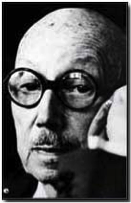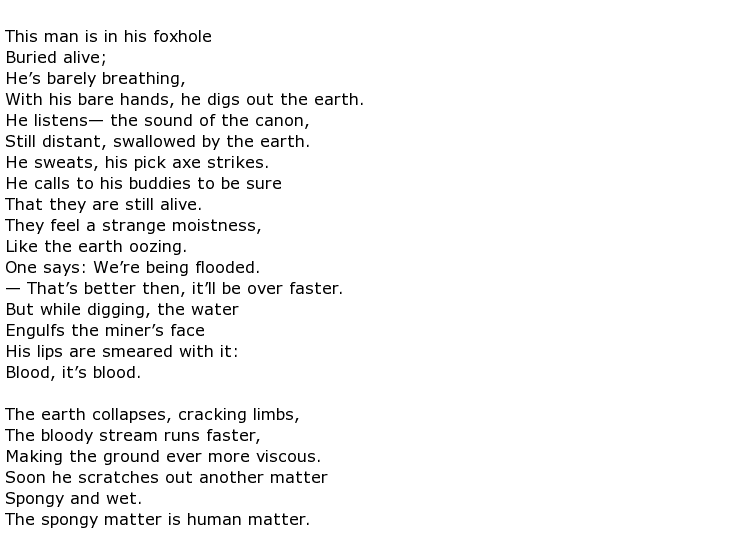 Pierre-Jean Jouve was a French poet and novelist. Born towards the end of the 19th century he lived for a good part of the 20th and established a reputation as one of his country’s best poets of that time. His most notable work was the anti-war poetry that he wrote, often in grisly and graphic detail, that left the reader in no doubt as to where his sympathies lay.
Pierre-Jean Jouve was a French poet and novelist. Born towards the end of the 19th century he lived for a good part of the 20th and established a reputation as one of his country’s best poets of that time. His most notable work was the anti-war poetry that he wrote, often in grisly and graphic detail, that left the reader in no doubt as to where his sympathies lay.
He was born on the 11th October 1887 in the Pas-de-Calais town of Arras. He was, of course, in his twenties when the First World War broke out and he was determined to document the slaughter and miseries endured the best way that he could. As well as articles written for magazines and newspapers he published some three volumes of poetry at this time but later on he took a deliberate stance against this work, relieving himself of any responsibility for it.
He suffered badly during the first year of the war, picking up diseases such as scarlet fever and whooping cough, not from the mud and the gore of the battlefields but from patients in his care. He was a nurse at a hospital set up to treat infectious diseases but he had to take a leave of absence from his duties to recuperate in the Swiss mountains.
Maybe it was the suffering that he witnessed, or maybe it was just his own mind, but he seemed confused during those early stages of the conflict. In some ways he followed Leo Tolstoy’s idealised view in that the world would eventually become united through a gradual progression of fraternal love as the conflicts subsided. On the other hand he foresaw apocalyptic visions of the man-made, total destruction of mankind and the world in which we lived.
His poetry was initially sympathetic towards those who were suffering the consequences of war but his views evolved towards blaming those responsible for widespread death and destruction. His words are almost preacher-like, condemning those who bring about the cruel mutilation and sudden death of their fellow men. He alludes to almost biblical situations where no one repents their sins and all are punished accordingly.
Take, for example, this excerpt from one of his poems, published in Danse des morts in 1917. The English translation of its title is The Buried and the reader is left in no doubt what to expect simply by reading the title. It is a historical fact that so many men died because they simply fell in the deep, cloying mud of the battle field and were never seen again. Their bodies were buried in these foul, shallow graves, and then unknowingly trampled on, and sometimes uncovered by, their comrades. The detail that Jouve put into this, and other poems, is quite shocking:

Jouve was not alone in his anti-war stance and he often spoke out against the generals, governments, the church and even ordinary mothers who encouraged their sons to go and do their duty. He blasted the press for their jingoism but, strangely, by 1921, he seemed to change his attitude altogether. Before, he had associated with anti-war writers and artists in Geneva and other places but now he deliberately distanced himself from their views and ideologies.
Notable work such as his poetry collections of 1915 called Vous êtes des hommes (You Are Men) and Danse des morts (Dance of the Dead), published in 1917, were deliberately disowned. Why he felt this way is still a mystery.
Pierre-Jean Jouve went on to live through another world war and died in Paris on the 8th January 1976 at the ripe old age of 88.

